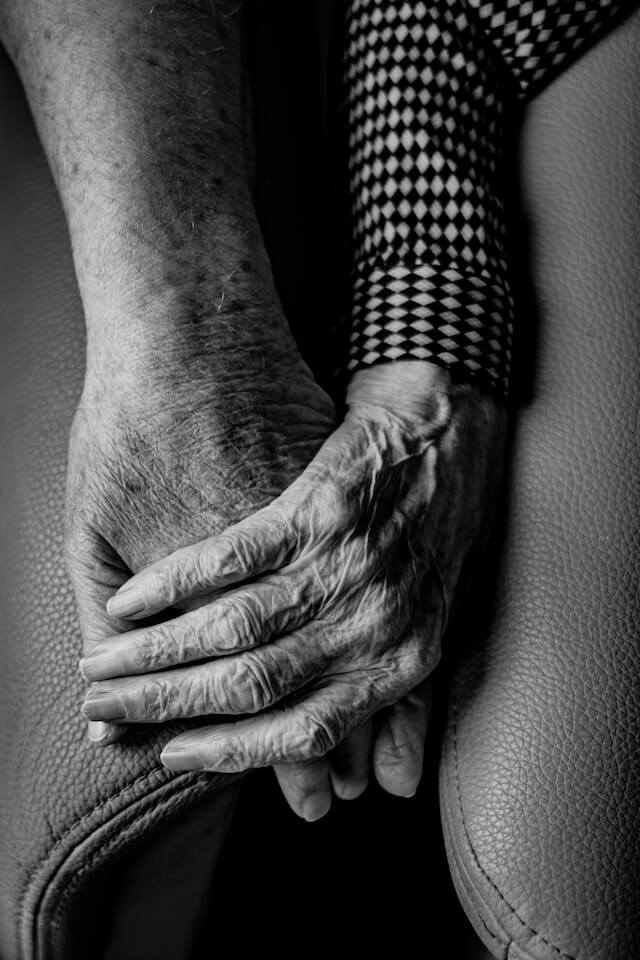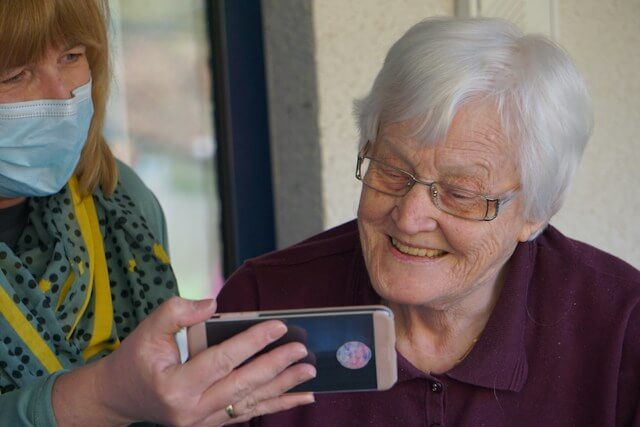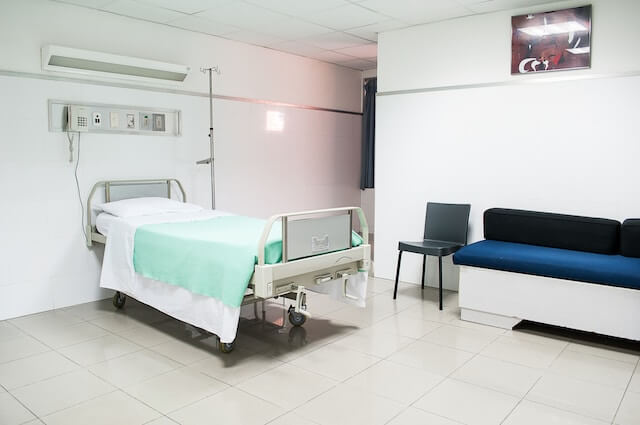As a CDS caregiver or parent caring for someone with cancer, it can be difficult to know how to approach the situation. It is not just a question of love, but of knowing how to meet the person’s needs and give them the best support possible.
Below we listed some ideas that will make your job as a caregiver easier.

Preparing Yourself to Become a Caregiver
Navigating the Medical System
One of the most complicated parts of becoming someone’s caregiver is learning to navigate the medical system. There are key points to take into consideration when becoming someone’s caregiver. Before starting the journey of caregiving, make sure to be aware of:
● Whether the cancer patient has already undergone a cancer treatment
● What kind of treatment, if any, the patient is undergoing
● If the patient has any disabilities or health problems besides cancer
This will take some personal time to be fully prepared for caregiving. The more time you take to prepare yourself before starting, the easier the process will be, and the more comfortable you will find yourself in dealing with unexpected situations. This includes educating yourself on the cancer and treatment of the patient, an important step of preparation.
Be Educated on the Type of Cancer and Treatment
As knowledge of cancer and its treatments continues to grow at a fast rate in the medical world, it can be easy to get lost in all the information and resources available. Taking the time to do research on the specific cancer and treatment a patient is undergoing will help you better connect with the patient and empathize with what they are going through.
Begin by asking the medical team for the name of the cancer, what stage of growth it is in, whether it is terminal, and if the patient is undergoing their first cancer treatment. In the United States, the most common cancers are breast cancer, prostate cancer, and lung cancer. However, the list is long, and cancers will grow differently for different people.
The list of possible treatments is vast as well. The kind of treatment a patient will receive will depend on the type and growth stage of the cancer, the health of the patient, and whether they have already undergone a treatment in the past for the cancer. The list of treatments includes:
● Chemotherapy
● Surgery
● Immunotherapy
● Radiation
● Stem Cell Transplant
This information should nearly all be given to you by the medical team in the form of documents and binders. When reading up on this information, do not rely merely on online sources, as the internet contains a lot of misinformation. Trust the medical team to give you the necessary facts.
Trusting The Medical Team
One of the most important aspects of being a successful caregiver for cancer patients is having a good relationship with and trust in the medical team. These are the people who have ultimate control on the health of the patient, and having open, honest, and transparent communication with them is key to providing the best possible care .In most cases, this will be made up of:
– The lead doctor
– Oncologist
– Nurse coordinator
The doctor will be the person supervising the decision-making in terms of treatment and medication. The oncologist, who specializes in the specific cancer of the patient, will also be involved in the decision making of treatment. The nurse coordinator is the lead nurse who deals with the nurses administering the treatment.
That said, it is important to note that you may not have the right to contact the medical team if the patient does not consent to it. If using an online platform such as MyChart, the patient can consent for the caregiver to have access to their file. Often, communication will be done either through MyChart, or indirectly with a receptionist on the phone.
Whether you are allowed to assist at the medical team meetings will depend on the patient’s wishes. They will need to explicitly consent to whether you are allowed to be part of appointments and have a say in the conversation.
Keeping the Doctor Informed of Any Changes or Issues
Keeping the doctor informed of any changes you notice in the patient’s health or behavior is a very important part of caregiving. The patient may not always be aware of changes themselves, so you should stay attentive to certain behavioral changes, including:
– Heavy fatigue
– Lack of appetite
– Headaches
– Fever
– Dizziness
These symptoms could be due to a variety of causes, such as common side effects of the treatment, and may not be an indicator of any serious issues. That said, it is imperative to communicate these types of changes you may notice to the doctor as soon as they arise. This brings up another important aspect of caregiving: staying organized.
It is important to keep in mind that many of the most severe symptoms experienced by a cancer patient will be due to the treatment rather than the cancer itself. Ask a doctor or medical professional if there are symptoms which are indicators of an emergency.
Staying Organized
Although you may not be directly responsible for the medical care of your patient, by being a caregiver you have a particular insight into the patient’s daily evolution and are responsible to track any changes which may occur. To be as organized as possible, make sure you:
● Have a daily journal to write down how the patient is doing, or any changes noticed in their health
● Have a file organized with copies of all the patient’s medical records and treatment plans
● Make task lists or have an agenda to organize any medical appointments or medication intakes of the patient
Once you have properly organized the necessary documents, gotten in touch with the lead medical care team, and done extensive research to best understand your patient’s condition, you are ready to begin the process of caregiving for a cancer patient.
How does it feel to be a caregiver for a cancer patient?
Although it is a difficult task, being a caregiver for a cancer patient may be one of the most rewarding experiences of your life. by taking time to meet the patient’s needs, you are offering some of the most important support any person with cancer could ask for.
The task may be even more difficult to handle if the patient is a relative or loved one, it is also a way to deepen your relationship with them by helping them alleviate the guilt, stress, and depression often associated with cancer patients.
Becoming a caregiver will provide you with insight and wisdom which will last a lifetime. To learn to listen, be patient, and provide personalized care are invaluable skills which can be applied to nearly all facets of life. Being a caregiver is not only beneficial for the patient, but for the caregiver as well.
Coaching the Patient Through Their Bad Days
Everyone has bad days. As a caregiver, you have the important role of learning to understand your patient’s personality, what may trigger depressive episodes during their treatment, and what kind of emotional support you can best give to them when they are feeling emotionally drained.
The first step is to try and notice what are triggers of the patient’s downs. They may come after doctor’s visits, receiving intensive medication, having to miss out on important life events, or any bad news coming in regarding the treatment process. Having a daily journal to write down your patient’s emotional state can help you identify these fluctuations.
Next is one of the most difficult parts of being a caregiver: learning what to do to help emotionally support your patient. What you can offer them will also depend on the patient’s mobility, physical capacities, and any limitations ordered by the medical team. Some possible things to do include:
● Going on daily walks if the patient is capable and allowed to
● Putting them in touch with family members and loved ones on the phone or in person (if allowed)
● Asking them questions and instigating conversations unrelated to the treatment and their condition
● Offering activities such as games, movies, or reading a book aloud
● Looking through photo books and albums of better times
There is no one-size-fits-all solution when it comes to supporting your patient. It will require trial and error on your part, and remaining patient throughout this process is essential to providing good care. Every patient is different, and exactly how to support them will take attentive listening and sympathy.
Reminding the Patient that You Love Them
As a caregiver, some of the best care you can give is showing your love and reminding the patient that they are special. It can be easy when living through cancer to feel like a burden to those around you, feel completely isolated, and lose hope or motivation for the future. Feeling loved can help alleviate these feelings and struggles during a battle with cancer.
Do not Let Them Focus on the Cancer
Although it is difficult to do, helping the patient experience moments of distraction regarding their condition is an invaluable part of caregiving. This may be done with activities previously listed. Having moments of distraction for the patient can provide them with emotional rest and rejuvenation.
It is equally important to remind the patient that they are not their cancer, and that they are much more than a mere medical file. The number of tests, medical appointments, and treatments someone with cancer has can be overwhelming for some patients, who feel absorbed by their condition. Reminding them otherwise is one of the principal roles of caregiving.
Getting in touch with family members and loved ones of the patient may also help give you ideas as to what could help the patient in times of difficulty. That said, it is important to not forget or put to the side the patient’s autonomy and letting them make decisions even in difficult times is crucial in the caregiving process.
Let the Patient Make Decisions
As a caregiver, it can be easy to feel that you know what is best for the patient at any given moment, even better than they do themselves. This kind of attitude, however, can go too far, and can impede on the quality of the care you give. Listening to the patient’s needs and giving them a voice in the decision-making process is crucial.
It Is all about finding the right balance. Asking the patient questions about what they want is important, but asking them too frequently can be overbearing, and they may feel annoyed or frustrated. Having cancer is an exhausting experience both physically and emotionally, so creating a space where your patient feels they can express themselves without any pressure is extremely important.
Although the patient’s medical team, friends and family around, and loved ones all have an important role in the process, it is ultimately the patient’s body at stake, and it is important that their autonomy is prioritized. By having open conversations on the topic with the patient, you can create a deep connection and make them feel even more comfortable in the process.
Taking Care of Yourself as a Caregiver
As you engage with the process of caregiving, you may find yourself exhausted, emotionally drained, and demotivated at points. Not only is this bad for your own health, but it may impede on the caregiving itself, and affect the patient’s mental health. Here are some tips on identifying a caregiver burnout, and how to perform self-care during the process.
Make time for yourself
Making time for yourself as a caregiver is necessary. At times, you may find yourself totally absorbed by the patient’s condition and taking time to recover from this regularly will help alleviate the difficulty of caregiving. To do this, make sure you:
● Organize your personal time when you are not caregiving
● Create a network of people you can go to in difficult moments
● Stay positive and keep some emotional distance from the patient’s condition
● Know your limits
● Learn to forgive yourself
Following these five tips will help you achieve the best possible care possible, for both your patient and yourself. Although they may not be easy to integrate at first, if you practice self-care regularly it can become an integral and unconscious part of your practice. It is equally important to learn to identify a caregiver burnout, and what to do if you start experiencing one.
Caregiver Burnouts: What They Are and What to Do
As explained above, being a caregiver for a cancer patient is a rewarding but physically and emotionally draining job. If a cancer caregiver also does not tend to their own needs it can lead to illness, anxiety, depression, irritability, social withdrawal, and even resentment.
How to Identify a Caregiver Burnout
There are several indicators to look out for if you are reaching a burnout. The list of indicators is vast and extensive, and although it will vary for each caregiver, some common indicators include:
● Fatigue and/or difficulty sleeping
● Intense depressive episodes
● Panic attacks
● New anti-social tendencies
● Not properly taking care of basic needs such as hygiene, appetite, and home maintenance
Facing some or all these symptoms suddenly does not mean that you are doing a poor job or that you necessarily need to stop. In fact, it may be a sign that you are investing yourself so much in your work, that you are losing sight of your own health. There are several ways to help with these symptoms.
Getting Professional Help
Seeking out therapy is not a sign of weakness, but of strength. Professionally trained therapists can help you navigate difficult thoughts you may be having and getting you back on track in your personal self-care. With the digitalization of the world, it is now possible to seek online therapy if there are none available near you.
Creating a Support Network
Communicating to a loved one and people around you that you trust what you are living through is another great way to relieve some of the accumulated pressure you may be facing. Getting coffee with a friend, having regular phone calls with loved ones, and being willing to openly communicate your issues are useful ways to facilitate your caregiving experience.
There are also social groups dedicated not only for caregivers. The American Cancer Society offers online cancer caregiver support group meetings. Caregivers are often overlooked and forgotten about, and having other caregivers to speak with a feel valued by is a great way to relieve some difficulties.
Taking Some Time Off
Although it is important to be available for your patient, taking a day off and finding someone to replace you for the day can give you the booster you need to keep going. Going to the spa, relaxing at home, or going out into nature are great ways to take a break and rejuvenate your mental wellbeing. Make sure the replacement is someone you can trust and is CDS certified as well.
Conclusion
Caregiving is an incredible experience and can make the experience of cancer much easier for a patient. Although it is no easy task, and requires a significant personal investment, by following the steps listed above you can be sure you are as prepared as possible for the experience. Remember that you are just as important as the patient you are caring for regardless of the gravity of the patient’s cancer.



